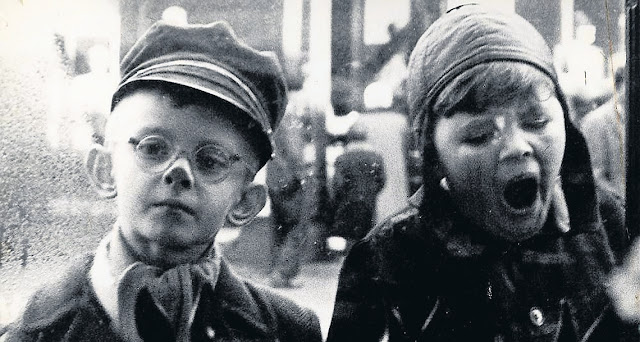"Her photographs are deceptively simple, taking an intimate, direct approach to her subject, trailing main tropes of Pictorialism, painting during the Young Poland period, abstraction and surrealism, and applying them to photography. ofia Rydet's images of children and rural families in Poland from the 1960s and 1970s are among the insightful and well-executed photographic series of postwar Poland. Born on the 5th of May 1911 in Stanisławowo, she became a member of the Gliwice Photography Association in 1954. There she met Jerzy Lewczyński link opens page in new window , Władysław Jasieński and Piotr Janik, photographers who were active in documenting changes of postwar Poland and the implementation of socialist ideals in urban planning and society.
Her first major exhibition took place in 1961, with the Little Man series of middle-class children in Poland and other socialist nations. The series was published as an album of over 140 photographs in 1965, edited by Wojciech Zamecznik, in 1965, and the book is considered one of the important albums of 20th-century Polish photography. Rydet described her approach in the series, saying she 'wanted to move away from the stereotype of a care-free angelic childhood and show the multifaceted complexity of childhood experiences and reactions. Through appropriate synthesis, I wanted to say something about mankind, because as Korczak once said 'everything that happens in the dirty adult world also happens in the children's world', alluding to the teacher and author Dr. Janusz Korczak link opens page in new window . Rydet shifted her focus to the broader sphere of children and adults between 1978 and 1989, in her Sociological Record. The series consists of tens of thousands of negatives taken in rural regions of Poland comprise the series, and present people from all walks of life in their typical surroundings. These works were characterised by particular senses of emotion, spanning the spectrum from loneliness, fear and loss, to happiness and hope. Rydet's Sociological Record has been compared to August Sander's work throughout German society in the 1920s, and to other socially minded documentary photographers..."(Author: Agnieszka Le Nart, update: January 2016, GS. culture.pl )
Sociological Record - Zofia Rydet
Sociological Record - Zofia Rydet













No comments:
Post a Comment